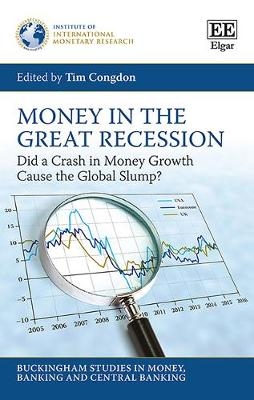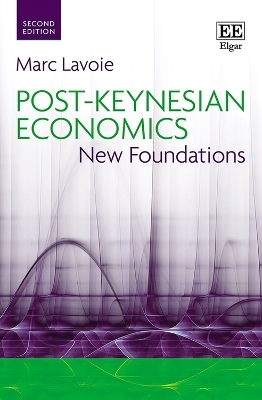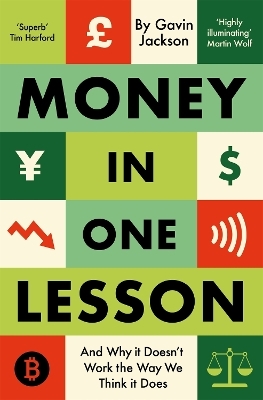
Money in the Great Recession
Edward Elgar Publishing Ltd (Verlag)
978-1-78471-782-7 (ISBN)
No issue is more fundamental in contemporary macroeconomics than identifying the causes of the recent Great Recession. The standard view is that the banks were to blame because they took on too much risk, 'went bust' and had to be bailed out by governments. However very few banks actually had losses in excess of their capital. The counter-argument presented in this stimulating new book is that the Great Recession was in fact caused by a collapse in the rate of change of the quantity of money. This was the result of a mistimed and inappropriate tightening of banks' capital regulations, which had vicious deflationary consequences at just the wrong point in the business cycle. Central bankers and financial regulators made serious mistakes. The book's argument echoes that on the causes of the Great Depression made by Milton Friedman and Anna Schwartz in their classic book A Monetary History of the United States. Offering an alternative monetary explanation of the Great Recession, this book is essential reading for all economists working in macroeconomics and monetary economics. It will also appeal to those interested in the wider public policy debates arising from the crisis and its aftermath.
Contributors include: P. Booth, J.E. Castañeda, T. Congdon, C. Goodhart, S. Hanke, D. Laidler, A. Ridley, R. Skidelsky, R. Thomas
Edited by Tim Congdon, CBE, Chairman, Institute of International Monetary Research and Professor, University of Buckingham, UK
Contents:
PART I What were the causes of the Great Recession?
Preface to Part I
Tim Congdon
1. What were the causes of the Great Recession?: the mainstream approach vs. the monetary interpretation
Tim Congdon
2. The debate over ‘quantitative easing’ in the UK's Great Recession and afterwards
Tim Congdon
3. UK broad money growth and nominal spending during the Great Recession: An analysis of the money creation process and the role of money demand
Ryland Thomas
4. Have central banks forgotten about money?: The case of the European Central Bank, 1999 – 2014
Juan E. Castañeda and Tim Congdon
PART II The financial system in the Great Recession: culprit or victim?
Preface to Part II
Tim Congdon
5. The impact of the New Regulatory Wisdom on banking, credit and money: good or bad?
Sir Adam Ridley
6. Why has monetary policy not worked as expected?: Some interactions between financial regulation, credit and money
Charles Goodhart
7. The Basle rules and the banking system: an American perspective
Steve Hanke
PART III How should the Great Recession be viewed in monetary thought and history?
Preface to Part III
Tim Congdon
8. Monetary policy, asset prices and financial institutions?
Philip Booth
9. How would Keynes have analysed the Great Recession of 2008 and 2009?
Robert Skidelsky
10. Why Friedman and Schwartz’s interpretation of the Great Depression still matters: reassessing the thesis of their 1963 Monetary History
David Laidler
Index
| Erscheinungsdatum | 05.07.2017 |
|---|---|
| Reihe/Serie | Buckingham Studies in Money, Banking and Central Banking |
| Verlagsort | Cheltenham |
| Sprache | englisch |
| Maße | 156 x 234 mm |
| Themenwelt | Wirtschaft ► Volkswirtschaftslehre ► Finanzwissenschaft |
| ISBN-10 | 1-78471-782-7 / 1784717827 |
| ISBN-13 | 978-1-78471-782-7 / 9781784717827 |
| Zustand | Neuware |
| Haben Sie eine Frage zum Produkt? |
aus dem Bereich


